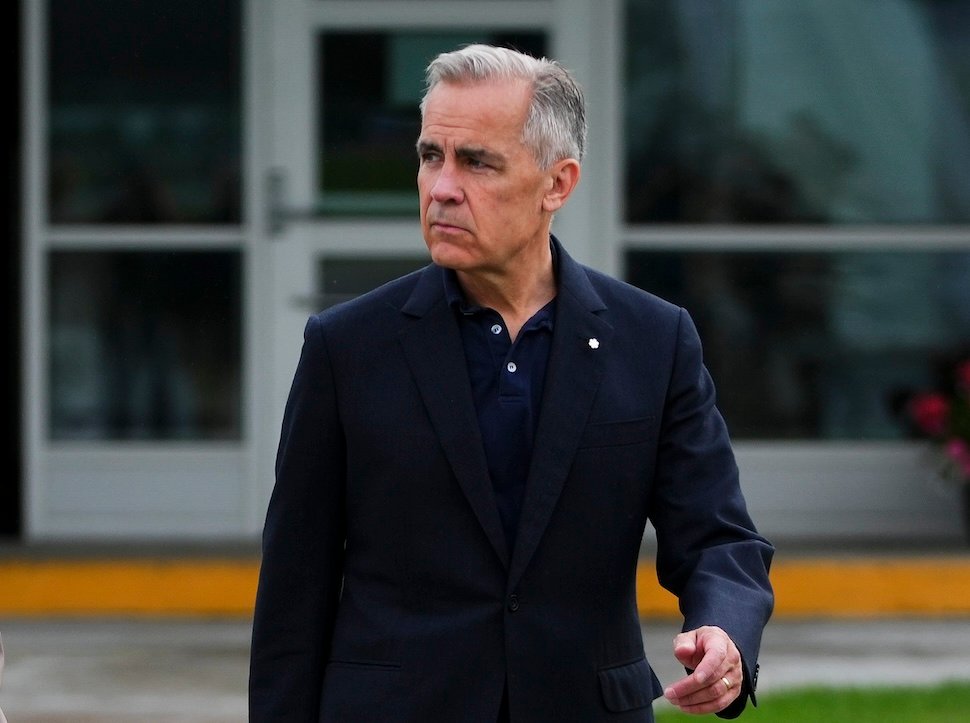At the 2025 NATO Summit in the Netherlands, world leaders gathered under the shadow of multiple global crises—from the smoldering war in the Middle East to a resurgent Russian threat in Eastern Europe. But for Canadian Prime Minister Kani, a different kind of tension lingered beneath the diplomatic surface: persistent rumors that former President Donald Trump had once considered the annexation of Canada.
In a revealing interview with journalist Christiane Amanpour, Prime Minister Kani addressed the speculation head-on.
“He’s not [talking about annexation anymore],” Kani clarified. “He admires Canada, I think it’s fair to say—and maybe, for a period of time, coveted Canada—but we are two sovereign nations.”
The comment—half-dismissal, half-confirmation—fueled renewed attention to a long-whispered geopolitical curiosity. While never officially proposed, Trump’s alleged interest in acquiring Canadian territory, particularly in relation to its vast critical mineral deposits, has been the subject of behind-the-scenes diplomatic chatter for years.
“America First” Meets “Map Redraw”?
During Trump’s first term, his administration took a transactional approach to foreign relations, focusing on renegotiating trade agreements like USMCA, applying tariffs on Canadian aluminum and steel, and often questioning the value of long-standing alliances. Behind closed doors, Canadian officials reportedly worried that Trump’s rhetoric and tactics blurred the line between economic dominance and outright territorial ambition.
“He once jokingly asked if buying Greenland was off the table—Canada’s critical mineral fields would be even more valuable,” noted a former U.S. national security adviser. “With Trump, jokes have a way of becoming policy drafts.”
During the Amanpour interview, Prime Minister Kani noted that Canada’s mineral wealth, including rare earths essential to modern defense and tech industries, has drawn intense interest from several global powers—including the U.S.
“We’re going to develop those [minerals] in Canadian interest,” Kani asserted. “We’re developing some of them in partnership with the EU, with the U.K. — not to be bought out or annexed.”
Defense Spending as a Shield?
Kani also highlighted Canada’s sharp increase in defense spending—reaching NATO’s 2% GDP target, with plans to hit 3.5%—not just as a strategic alliance move, but also a subtle signal of sovereignty and preparedness.
“Five percent of our GDP would be about $150 billion per year,” he explained. “But much of that is for infrastructure like ports and railroads to secure our mineral assets.”
In diplomatic circles, some analysts believe this investment is also a hedge against any future U.S. coercion, whether economic or otherwise.
“Canada’s increased defense posture isn’t just about Russia—it’s about maintaining strategic autonomy from all directions,” said Dr. Laura Thorne, a NATO analyst based in Brussels.
Trump’s Silence Fuels Speculation
Asked directly whether President Trump still harbored annexation ambitions, Kani responded carefully: “We’re discussing the future of our trade relationships and our defense partnership. I don’t think this is something the president would react negatively to.”
But Kani also acknowledged Trump’s unpredictability and personal approach to diplomacy. When Amanpour joked that he might be considered the “Trump whisperer,” the Prime Minister offered a faint smile but no denial.
While Trump has made no public comments on Canadian annexation during this summit, his past remarks—such as criticizing “globalists” and expressing admiration for Canada’s natural resources—continue to haunt the narrative.
A Turning Point in North American Relations?
Ultimately, the annexation rumors serve as a symptom of deeper shifts in North American geopolitics. As the U.S. under Trump appears increasingly committed to bilateral deals and withdraws from multilateral institutions, nations like Canada are seeking new coalitions and strategic autonomy.
“If the U.S. no longer wants to lead,” Kani said, “Canada will help build a coalition of likeminded nations.”
That statement, along with a fresh Canada–EU defense and economic pact, signals a post-America-first world—one where even the idea of annexation, once unthinkable, can linger as a diplomatic ghost.

